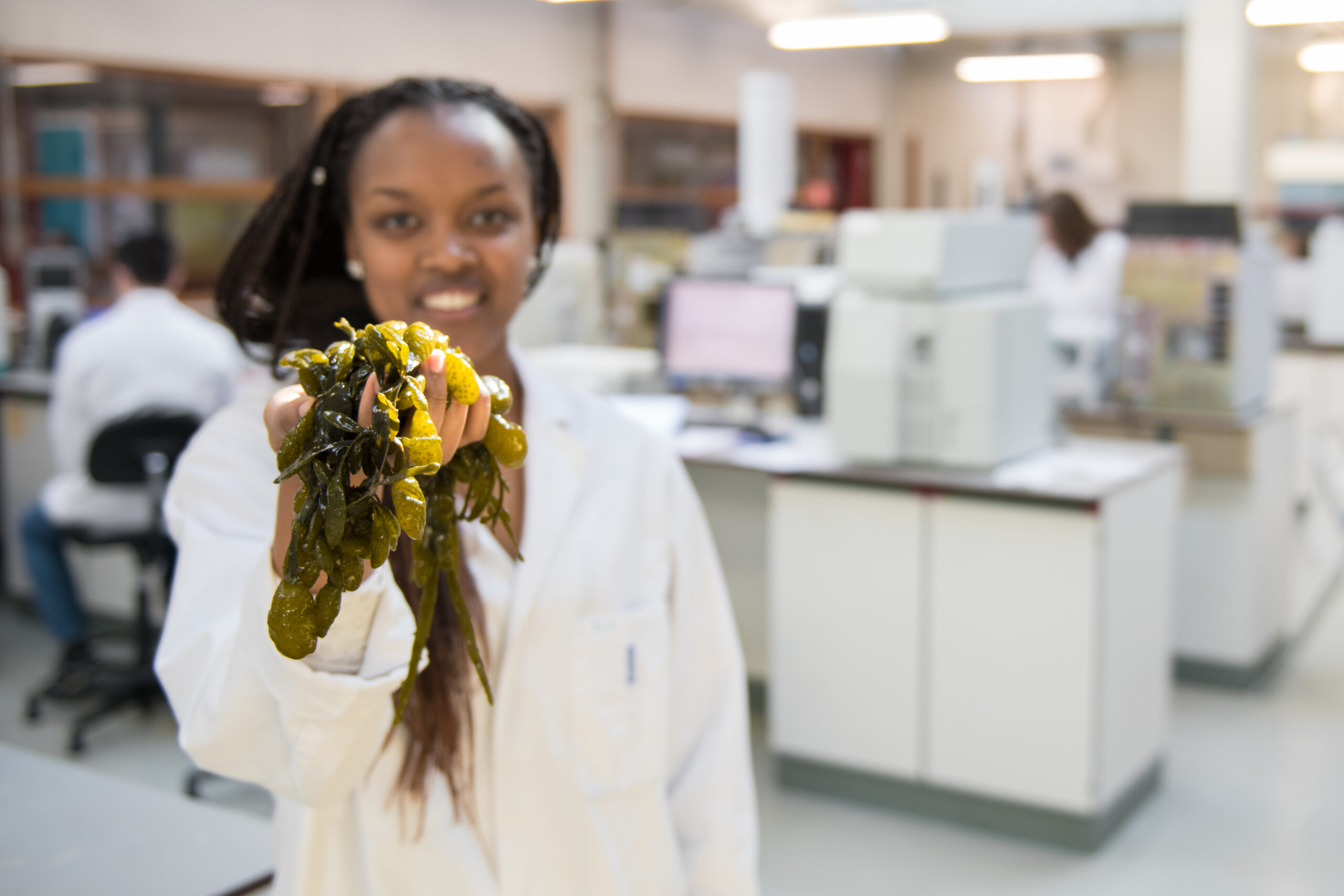Background
The continuously growing global population requires sustainable sources of dietary protein. Currently, most dietary protein originates from animal and plant agriculture. This has negative consequences, such as deforestation, (water) pollution and emission of greenhouse gases. In addition, the large consumption of the amounts of animal protein may be considered unethical. In order to move towards a more sustainable food system, the protein transition is important. Next to a sufficient protein intake and the amino acid composition of food, protein digestibility is important.
Seaweeds are a promising alternative protein source and can have up to 30% protein on dry weight (dw) basis. They have a low carbon footprint and experimental data shows that seaweeds contain large amounts of essential amino acids (EAAs).
However, it is often stated that the nutritional quality of seaweed is rather poor in terms of protein digestibility. This is due to the rigid, fibrous cellular structure of seaweed, in which the proteins are embedded (essentially ‘locked up’) As often observed in other foods, fermentation can improve the digestibility by weakening the cellular matrix due to the conversion of carbohydrates to organic acids. The marine biobased chemistry research group is currently evaluating the effects of fermentation on the brown seaweed Fucus serratus, and digestibility is a major parameters to evaluate.
Your Tasks
- Conduct a literature review on protein digestibility in seaweed
- Design and perform in vitro digestion experiments
- Analyze peptide breakdown and assess protein accessibility
- Work with both simple (isolates) and complex (whole food) matrices
What You’ll Learn
- Experimental design and execution in practice-oriented protein research
- Enzymatic digestion techniques and sample prep
- Interpreting digestibility and bioavailability results
- Applying food science principles to sustainable protein sources
Your Profile
- You’re studying Life Sciences, Food Technology, Chemistry, or similar
- You have affinity with both chemical analysis and biological processes
- You’re eager to learn and take initiative in a research environment
Interested?
Send your CV and motivation to tanja.moerdijk@hz.nl.




